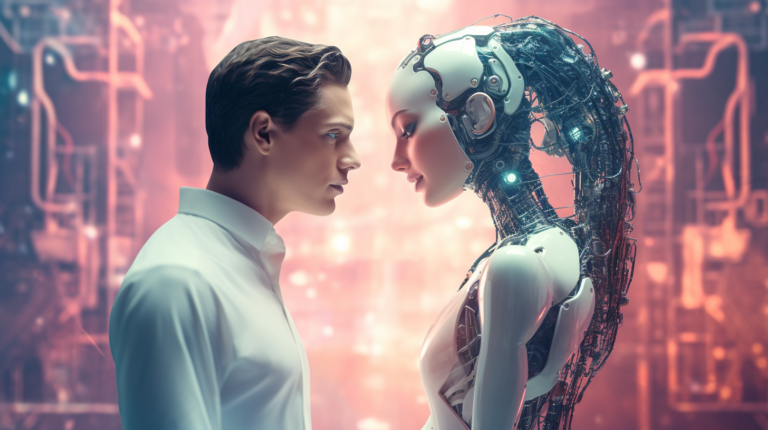So, you’ve just paired with an intriguing individual on a dating app. Their images are captivating, their banter delightful, and they even propose charming first date plans. You might believe you’ve landed on a genuine connection, but there’s a rising chance that they’ve had technological assistance. Enter the AI era of dating – a reality that’s no longer merely sci-fi speculation.
Many dating platforms have started to integrate AI components. For instance, Teaser AI deploys chatbots that emulate users to engage with potential matches, reducing dating app fatigue and phenomena like ghosting. Meanwhile, CupidBot, primarily targeting straight males, automates both swiping and conversing, ushering users directly to the “exciting part.” And the giant Match Group, proprietor of Tinder, Hinge, and OkCupid, recently unveiled its AI-driven feature to cherry-pick your most flattering photo.
Thanks to TikTok, AI’s role in the dating game has garnered more attention. Users demonstrate how AI tools like PhotoAI.Me or Adobe AI can perfect profile pictures, adding captivating backgrounds or airbrushing imperfections. Want to revamp your bio, brainstorm clever date ideas, or even gauge compatibility with a partner? Chat GPT can assist. Some argue that AI might refresh our online romantic engagements, streamlining the tedious aspects of swiping and initiating conversations. But is AI truly the remedy to our romantic tribulations?
The digital dating landscape is fraught with challenges. Online interactions seldom translate into real-life encounters. Constantly projecting the best version of oneself is draining. Superficial criteria often marginalize certain groups, exacerbating the flaws of desirability politics. Disenchantment is widespread among both men and women, with many bemoaning the superficial nature of online dating.
Herein lies AI’s allure: outsourcing the effort. Overburdened by daily life, many might welcome an AI assistant to handle the monotonous small talk, joining the conversation once it becomes captivating. Moreover, AI could scrutinize your exchanges to gauge compatibility, potentially averting future disputes.
But this approach has its pitfalls. AI reinforces the notion that dating, like all things, must be efficient, echoing the capitalistic drive to commodify even love. By entrusting a chatbot with romantic pursuits, we risk amplifying superficial standards of desirability, sidelining the spontaneous connections that emerge unexpectedly. Relying too heavily on AI could render potential partners even more expendable, reducing genuine commitment and heightening dissatisfaction.
Furthermore, AI promises perfection: the best photos, descriptions, and interactions. But genuine attraction isn’t always about perfection; oftentimes, we’re drawn to peculiar quirks or minor imperfections. AI’s polished methodology harks back to outdated notions of love, lacking the innovative spirit that relationships demand.
Sophie K Rosa, in “Radical Intimacy,” critiques the commodification inherent in dating apps, noting that certain ideologies even reduce women to mere assets in the “dating market.” Such perspectives can be exploited, using AI to manipulate romantic interactions, even leading to scenarios where men subscribe to AI-driven virtual partners they can control.
Ethics enters the debate, too. Using AI tools might be seen as deceitful. While seeking advice in romance isn’t new, AI-powered content, easily shared with multitudes, can seem insincere. A survey by OK Cupid indicates that a majority of users perceive AI-driven profiles as a breach of trust. AI’s role might exacerbate the disparity between online personas and real-life identities.
Eventually, humans must reclaim the conversation. If interactions predominantly involve AI-driven exchanges, real-life meetings could be anticlimactic.
Some viral TikTok videos promote AI’s use in deceptive strategies, like creating fabricated images to incite jealousy in partners. This advice, often framed as empowering for women, essentially advises manipulation to regain romantic control. While using AI to sidestep patriarchy’s pitfalls may be tempting, it’s hardly a wholesome solution.
Ultimately, while AI isn’t the sole perpetrator of these challenges, it’s naive to assume it won’t amplify existing problematic behaviors. The AI-driven romance revolution may promise a brighter dating future, but in its current form, the outlook remains uncertain.




